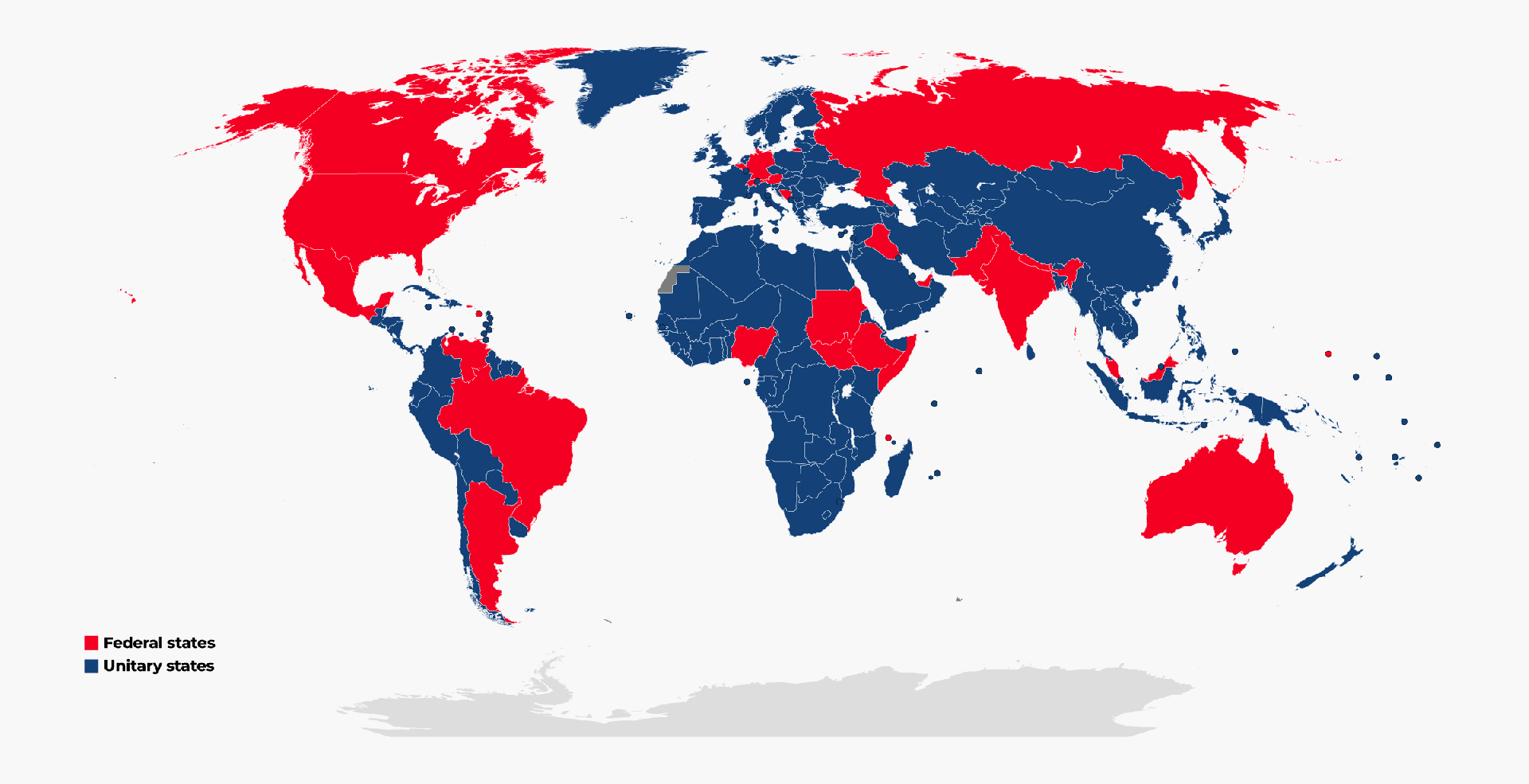
The concept of true politics is not about the negativity of threats and blackmail. It must be visionary, shaping the future for the common good, grounded in a fair and courageous reading of the past and present realities.
“If the Shiite duo, Amal-Hezbollah, persists in refusing to abide by the laws and the Constitution, we will have no other choice but to raise the issue of federalism.” This phrase is repeatedly used as a threat, a form of blackmail wielded by certain Christian politicians. It implies that federalism is a lesser evil—unfortunate but necessary, and a better alternative to the widespread collapse brought about by Hezbollah’s militia and its supporters.
The Threat
Since the 1970s, this rhetoric has resurfaced at every critical juncture when the security and survival of Christians are at risk. It acts as a scare tactic, meant to be wielded to emphasize its leverage in negotiations over the spoils of the central state. Whether facing the Palestinians and their Mourabitoun allies, the Syrians or today the Shiite duo, the same threat recurs: “Do not force us toward federalism,” in other words, “Do not push us to make the wrong choice to safeguard our survival.”
These politicians seem just as inept in this matter as any newcomer. Unfortunately, in Lebanon, a background in political science is not required to engage in politics, represent the people and fight for their security and prosperity. The criteria for joining Parliament or the government are entirely different and do not take the relevance of this discipline into account. In this broader climate of incompetence, many who should be working for the common good instead use the concept of federalism as a tool of intimidation.
However, all serious studies consistently highlight the federal governance system as the most enlightened and respectful approach to human dignity. As a warrantor of harmony, it is ideally suited to ethnic diversity, whether cultural, linguistic, racial or religious, as in Switzerland (where it mainly involves linguistic differences), or ethnoreligious, as in Lebanon (where it reflects deep cultural divides).
Harmony
The facts confirm what political science analyses and research consistently show: 40% of the world’s population lives under federal systems and prospers just as well as in Switzerland, the United Arab Emirates, Germany or Australia. The federal system even averted the partition of Canada while preserving Quebec’s unique characteristics. As a result, during the 1995 referendum, Quebecers voted to remain within the federation.
Therefore, federalism is the ideal framework to safeguard coexistence. It is grounded in the principle of subsidiarity, advocated by the Church's social doctrine and outlined in the 1931 encyclical Quadragesimo Anno under Pope Pius XI. In this context, subsidiarity is presented as a guarantor of pluralism, and by extension, of human rights and the rights of minorities. It is defined as “the pluralistic structuring of society and the representation of its vital forces.”
Under John Paul II, the Church even warned against any distortion of this form of governance in the name of politically correct ideals. In its 2004 social doctrine, it stated that “experience shows that denying subsidiarity, or limiting it in the name of supposed democratization or equality in society, limits and sometimes even destroys the spirit of freedom and initiative.”
The Prerequisites for Federalism
Federalism is the ultimate form of harmony and coexistence. In contrast to the relentless claims of certain Christian politicians, it can only be applied if the Shiite duo is committed to the principles of coexistence and international law. A federal system that truly unites can only be realized among groups acting in good faith, with a shared desire to build a common project while respecting their diversity.
It is precisely when the Shiite duopoly stubbornly rejects national and international law that federalism becomes unachievable and partition becomes the only viable option. Creating a national project does not entail dividing central power, monopolizing certain ministries by an ethnoreligious community or granting a veto power. It is therefore not about allocating roles through a process of concessions and the gradual erosion of the state's sovereign functions. Such practices would only result in the collapse of institutions and the irreversible emigration of the youth.
The Anthropological Realities
Like the unitary state, federalism is based on a shared vision and the desire to build, together, a national entity that fosters unity while respecting diversity. The crucial question is whether all the key players involved in what we consider a national project can embrace the concept of a nation and its borders. What about transnational identities—those that cannot accept this idea due to ideological reasons (such as Wilayat al-Faqih or Arabism), or even due to dogmatic beliefs within their religion, which blends both spiritual and temporal dimensions?
Nation-building is a serious undertaking, and when it fails, the consequences can be devastating, as seen in Lebanon since 2019. This task can no longer be left to career politicians, heirs of feudal or neo-feudal dynasties, or clerics thrust into politics. Decisions that shape the future of men and women, their security and their heritage cannot be built on utopian visions or empty slogans. Anthropological research—and the courage to accept its findings—are essential to preventing the mistakes of the past.
True politics is the courage to put forward a project founded on a clear vision and a noble cause. It establishes programs and strategies to achieve concrete goals and move forward constructively to build a sustainable future. It is not driven by threats or coercion, nor does it operate reactively. Instead, it relies on planning and foresight, offering solutions before crises unfold. True politics is visionary, shaping the future through a rigorous and courageous understanding of the past and a clear assessment of the present.




Comments